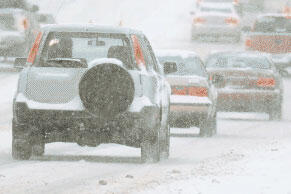New guidance on commuting expenses for hybrid workers
You probably know that you can’t claim tax relief for the expenses associated with travelling to your usual place of work. However, what is the position if you're a “hybrid” worker? The guidance on this has recently been updated for clarity, so what's the answer?

The rules surrounding which journeys you can and cannot claim tax relief for travel expenses are complex, resulting in HMRC publishing guidance with over 50 examples. As a general rule, there is no tax relief for the cost of a journey which is ordinary commuting or private travel. Ordinary commuting means travel to and from a permanent workplace.
For hybrid workers, a question arises as to whether their home or their office should be considered to be their permanent workplace. The guidance on the tax deductibility of commuting expenses for hybrid workers (those who have the flexibility to choose whether to work from home or in the office) has been updated. This puts beyond doubt that journeys from home to a base office will be ordinary commuting. Therefore, tax relief is not available for such costs.
Note that the situation is different if the homeworking arrangements are not voluntary. For example, if you must work from home as a requirement of your job, you should be able to claim tax relief for expenses incurred travelling to your employer.
Related Topics
-
Electronic VAT return
-
MTD glitch risks confusion over 2025/26 payments on account
Some taxpayers testing Making Tax Digital for Income Tax (MTD IT) are seeing confusing and incomplete payment information because their data is split between HMRC’s digital and self assessment systems. What’s happened?
-
Employment Intermediaries return

 This website uses both its own and third-party cookies to analyze our services and navigation on our website in order to improve its contents (analytical purposes: measure visits and sources of web traffic). The legal basis is the consent of the user, except in the case of basic cookies, which are essential to navigate this website.
This website uses both its own and third-party cookies to analyze our services and navigation on our website in order to improve its contents (analytical purposes: measure visits and sources of web traffic). The legal basis is the consent of the user, except in the case of basic cookies, which are essential to navigate this website.